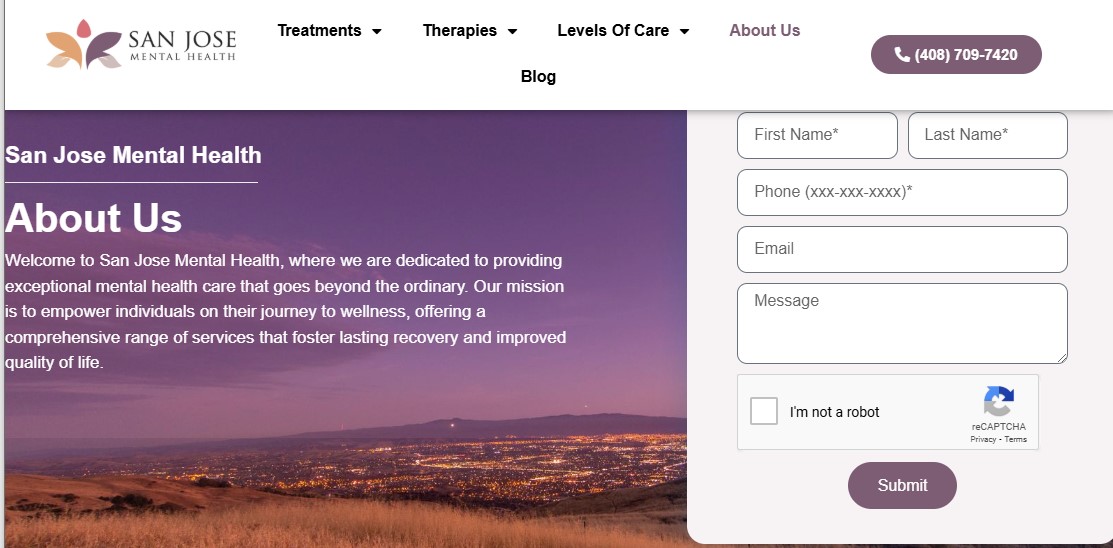If you or a loved one is struggling with extreme mood swings, it’s time to explore your options for bipolar treatment San Jose. Early intervention can make a world of difference. The right treatment plan can help stabilize mood, reduce relapses, and restore a sense of normalcy in everyday life. In this post, we’ll dive deep into the different types of bipolar disorder, the treatments available, and where to turn for help in San Jose.
Understanding Bipolar Disorder
Bipolar disorder is a mental health condition characterized by dramatic shifts in mood, energy, and activity levels. These aren’t just mood swings — they can be intense, disruptive, and sometimes dangerous. The condition typically presents in one of three forms:
-
Bipolar I Disorder: Defined by manic episodes lasting at least 7 days, or severe symptoms that require hospitalization. Depressive episodes often follow.
-
Bipolar II Disorder: Characterized by a pattern of depressive episodes and hypomanic episodes, which are less severe than full-blown mania.
-
Cyclothymic Disorder: Milder episodes of mania and depression that last for at least two years.
Why Early Treatment Is Crucial
Delaying treatment can lead to more frequent episodes, job loss, relationship breakdowns, and even substance abuse. Fortunately, comprehensive bipolar treatment in San Jose is within reach and offers a range of tools to manage symptoms effectively.
Core Components of Bipolar Treatment
A solid bipolar treatment plan is typically multi-modal, combining several approaches for the best outcome. Here’s what that might include:
1. Medication Management
Mood stabilizers are the cornerstone of bipolar treatment. Common medications include:
-
Lithium – Often considered the gold standard
-
Valproate or Divalproex Sodium
-
Lamotrigine
-
Antipsychotics for manic or mixed episodes
Close monitoring is essential, especially in the early stages, to avoid side effects and adjust dosages.
2. Psychotherapy
Therapy is vital for helping individuals understand their triggers and develop healthy coping skills. Options include:
-
Cognitive Behavioral Therapy (CBT)
Helps challenge negative thought patterns. -
Interpersonal and Social Rhythm Therapy (IPSRT)
Focuses on maintaining regular daily routines. -
Family-Focused Therapy (FFT)
Includes loved ones in the recovery process to improve communication and support.
The San Jose Advantage: Access to Specialized Treatment
San Jose is home to a wide variety of mental health facilities, licensed therapists, and psychiatrists who specialize in bipolar treatment. These experts work collaboratively to ensure:
-
Personalized care plans
-
24/7 support if needed
-
Integrated treatment for co-occurring disorders like anxiety or addiction
What to Expect During Treatment
The journey to stability doesn’t happen overnight, but with consistency and support, life can improve dramatically. Here’s what a typical treatment journey looks like:
-
Initial Evaluation
A psychiatrist assesses symptoms, medical history, and lifestyle factors. -
Treatment Plan Development
This may include medication, therapy, lifestyle coaching, or inpatient support if needed. -
Regular Check-ins
Weekly or bi-weekly appointments to monitor progress and make adjustments. -
Long-Term Support
Support groups, lifestyle changes, and family involvement keep relapse at bay.
Living with Bipolar Disorder: Practical Tips
While treatment is vital, so are daily habits. Consider integrating the following:
-
Stick to a routine: Regular sleep, meals, and exercise can reduce symptoms.
-
Track moods: Use an app or journal to note triggers and patterns.
-
Limit alcohol and drugs: These can interfere with medication and mood stability.
-
Stay connected: A strong support network boosts emotional resilience.
Choosing the Right Provider in San Jose
When searching for a bipolar treatment provider, consider:
-
Credentials: Are they licensed psychiatrists or therapists?
-
Specialization: Do they have experience with mood disorders?
-
Approach: Is the treatment holistic or strictly medical?
-
Accessibility: Can you get an appointment when you need it?
Many clinics in San Jose offer telehealth options, making it easier than ever to receive help from home.
How Family and Friends Can Help
Support from loved ones is a key component of managing bipolar disorder. Here’s how they can help:
-
Educate themselves about the condition
-
Offer nonjudgmental support during episodes
-
Encourage routine and treatment adherence
-
Attend therapy sessions if invited
Common Challenges and How to Overcome Them
Even with treatment, individuals may face:
-
Medication resistance or side effects
-
Denial of symptoms or skipping appointments
-
Stigma, both internalized and external
The solution? Keep lines of communication open, lean on your care team, and remember — setbacks are not failures.
Resources for Bipolar Treatment in San Jose
Here are a few helpful resources for those seeking care:
-
National Alliance on Mental Illness (NAMI) Santa Clara County
Offers support groups and educational resources. -
San Jose Behavioral Health
Provides inpatient treatment for mood disorders. -
Santa Clara County Behavioral Health Services
Offers affordable public mental health services.
Final Thoughts: Recovery Is Possible
Dealing with bipolar disorder isn’t easy, but with the right bipolar treatment in San Jose, it is absolutely manageable. From medication and therapy to lifestyle changes and community support, there are countless avenues to build a more stable, fulfilling life.
Whether you’re taking the first step or supporting someone on this journey, remember: you’re not alone. San Jose offers the tools, experts, and compassion you need to find hope and healing.
FAQs About Bipolar Treatment in San Jose
How much does bipolar treatment cost in San Jose?
Costs vary depending on your provider, insurance coverage, and treatment type. Some clinics offer sliding-scale fees or accept Medi-Cal.
Is inpatient treatment necessary for everyone?
Not always. Many people manage their condition well with outpatient therapy and medication, but inpatient care may be needed during severe episodes.
How long does treatment last?
Treatment for bipolar disorder is typically lifelong, but symptoms can be well-managed with consistent care.
Can bipolar disorder be cured?
While there’s no “cure,” people with bipolar disorder can lead healthy, productive lives with proper treatment and support.



